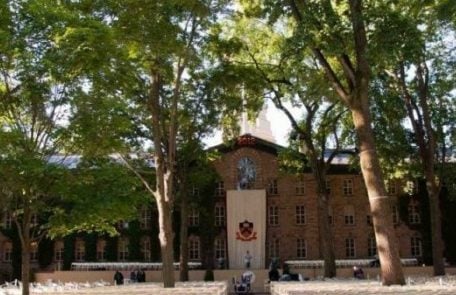
Princeton University officials have announced that the return to the campus after the winter break has been postponed a week due to the Omicron variant surge. The school has also changed protocols for the gradual return of students to campus.
Undergraduate students are not allowed to return to campus until Jan. 14 at the earliest. This is a week later than the previously announced Jan. 7 return date. Students must register their return and participate in campus COVID testing protocols. All students must submit a COVID test as soon as possible when they return to campus. Students must receive a negative test result before attending their first in-person class or activity.
All undergraduate and graduate students must receive a COVID booster by Monday, Jan. 31 or 30 days after they become eligible.
Beginning Jan. 8 through mid-February, all undergraduate students who have returned to campus will not be permitted to travel outside of Mercer County or Plainsboro Township in Middlesex County for personal reasons, except in extraordinary circumstances, school officials said.
University-sponsored indoor gatherings on or off of the campus, including meetings and events with faculty, researchers, staff, graduate students, undergraduate students, and approved visitors, may not include food or any activity that requires removing masks. Undergraduate students must continue to observe the 20-person gathering limit in their dorm room, suite, or off-campus housing. The gathering limits and regulations are in effect until at least mid-February.
“We know you’ll have questions about how the spring term will proceed when classes begin on January 24. We’re expecting that our public health protocols for undergraduates will keep the campus safe for in-person teaching and learning, as it was last fall,” Jill Dolan, dean of the college, and W. Rochelle Calhoun, vice president for campus life, wrote in an email to faculty members on Monday.
“That said, we might see more students in isolation, especially at the term’s start, or in mid-February, when our modeling suggests that this variant might peak. We’ll work with you on how to deliver course content to students who might need remote options while they’re isolating,” they wrote. “If a critical mass of students in any one of your classes are isolating, for example, it might be best to shift the class to a fully remote format for a short but specified period of time. Otherwise, opening a Zoom link for a few students in isolation might suffice, as it did in the fall.”
School officials will provide more information about teaching strategies and options when staff members return after the holidays. A student town hall will be held viz Zoom on Jan. 5, and a faculty town hall will be held via Zoom on Jan. 7.
For the week ending Dec. 24, 12 asymptomatic undergraduates tested positive for COVID, 23 asymptomatic graduate students tested positive, and 73 asymptomatic faculty and staff members tested positive, according to the university’s COVID dashboard. That same week, seven symptomatic undergraduates, four symptomatic graduate students, and five symptomatic faculty and staff tested positive for COVID,
